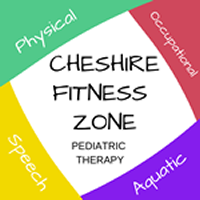For many parents, having a picky eater in the house is just part of the territory.
Kids’ sensory systems are still developing, and haven’t yet had the time to develop an adult palate. That means they seldom like to eat “grown-up foods” if they don’t have to—especially if pizza or ice cream are on the table!
But while picky eating is a normal stage in the development of many children, for some others it is symptomatic of a deeper issue. This is known as problem feeding, and it can require professional pediatric feeding therapy to overcome.
What are the Differences Between Picky Eaters and Problem Feeders?
Picky eating is a natural, normal part of growing up and can usually be overcome by normal persuasion—or simple hunger. Picky eaters can be difficult to keep happy at mealtime, but aren’t usually a cause for medical alarm.
On the other end of the spectrum, problem feeders express a more severe form of food aversion. Problem feeders typically express one or more of these symptoms:
- A narrow range of acceptable foods, usually fewer than 20
- Obstinate unwillingness to try new foods, even after repeated attempts
- Sudden refusal to eat foods that used to be accepted
- Refusal to eat even when hungry
- Expression of misbehavior, outbursts, tantrums, or withdrawal when presented with food
- In severe cases, inadequate caloric intake, poor weight gain and growth, nutrient deficiencies resulting from lack of eating
What Causes Problem Eating?
Problem eating can be caused by a number of different conditions, some of which may be physical and others psychological in nature. Here are some of the most common causes.
Autism
As many as two thirds of children on the autism spectrum have some degree of food aversion. It’s not uncommon for those aversions to become more severe problem eating. In cases where problem eating is caused by autism, it’s likely that other symptoms will manifest concurrently.
Sensory Processing Disorder
Sensory processing disorder is a condition that prevents the brain from properly receiving and interpreting sensory information. This can lead to issues with the taste and texture of certain types of foods. Sensory processing sometimes, but not always, occurs alongside autism and other developmental disorders.
Dysphasia
Dysphasia is defined by difficulty with swallowing, and may be thought of as a symptom or disorder in its own right. Problems with swallowing can make children anxious or self-conscious about eating and lead to problem feeding issues. Other symptoms can include:
- Food or liquid leaking from mouth
- Pocketing food inside cheeks
- Difficulty chewing
Other Causes of Problem Feeding
Some other common causes of problem feeding in children include the following:
- Cerebral palsy, meningitis, encephalopathy, and other nervous system disorders
- Gastrointestinal problems
- Cleft lip and/or cleft palate
- Muscle weakness in the face and neck
- Other head or neck abnormalities
- Respiratory conditions
- Side-effects from medication
- And others
 How is Problem Feeding Treated?
How is Problem Feeding Treated?
Problem feeding in children is treated with what is known as feeding therapy.
At Cheshire Fitness Zone, feeding therapy begins with a complete evaluation, including medical history and food journals. This helps feeding therapists to evaluate symptoms and possible causes to arrive at the best possible method of treatment.
Individualized treatments for problem feeding may include one or more of the following:
- Working to strengthen muscles in the face, jaw, tongue, and throat
- Working to strengthen core muscles to improve feeding posture
- Improving chewing for a variety of textures
- Providing sensory input to decrease sensitivity or increase awareness of sensation around the mouth
- Improving self-feeding skills
- And more
Problem Feeding Therapy for Children in Connecticut
If your child is experiencing problem feeding and you’re looking for treatment options in the Connecticut area, get in touch with Cheshire Fitness Zone today. A pediatric therapy clinic with location in Cheshire and Meriden, Cheshire Fitness Zone specializes in the treatment of problem feeding and related issues.
Make an appointment at Cheshire Fitness Zone today to learn more.



